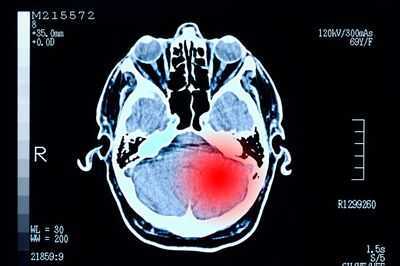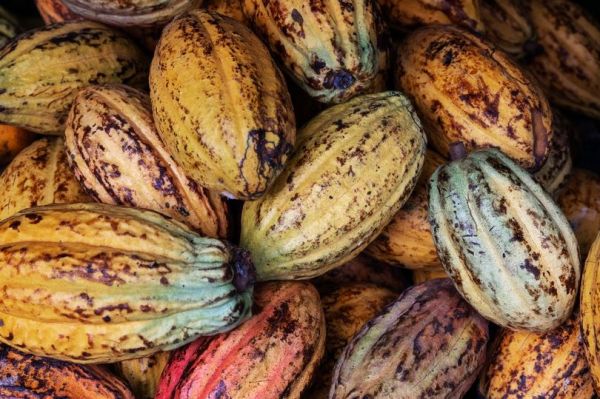
Including cocoa in your daily diet could give your brain a boost, according to a team of researchers who noted that it could be an "effective strategy to strengthen mental and cognitive health."
Just recently, Spanish researchers, including experts from the universities of Granada (UGR) and Malaga, carried out a study with mice looking at the effects of a cocoa-enriched diet on brain neuroplasticity, memory and emotional regulation. In their , published in Food & Function, they discovered the effects of a diet enriched with cocoa and found that consuming cocoa with a high phenolic content stimulates neurogenesis in the hippocampus.
Interestingly, neuroplasticity is needed for good memory, facing challenges and even recovering from brain damage. This essential neuroplastic process is where new neurons are generated, crucial for memory and learning.
The experts share that cocoa consumption may support brain health by increasing the expression of brain-derived neurotrophic factor (BDNF). BDNF is a crucial protein that plays a key role in neuronal survival which helps brain cells (neurons) stay alive and function properly.
It is also good for dendritic growth which promotes the growth of dendrites, which are tree-like extensions of neurons that help in transmitting signals between brain cells. In addition to these, it's also good new for synaptic plasticity which enhances the brain's ability to adapt, form new connections, and strengthen existing ones, which is essential for learning and memory.

Consumption of cocoa, obtained from the Theobroma cacao tree whose beans are used to make various food like chocolate, has increased considerably, reports . It contains more than 300 different components like magnesium, potassium, iron and zinc - all essential minerals - and it's good news for the dark chocolate lovers among us.
It also boasts fiber, methylxanthines (caffeine and - the most abundant - theobromine, a derivative of caffeine) and polyphenols. In fact, the late doctor Michel Mosley said polyphenols, a compounds found in plants, is nothing but brain boosting.
Talking about green tea and its abundance of polyphenols, he explains that the compound can prevent or reverse damage in cells caused by aging, the environment and lifestyle. said: “I’m a huge fan of black tea, but what I happen to be drinking at the moment is green tea, and this is rich in a polyphenol known as epigallocatechin-3-gallate or EGCG. Apparently, it’s terribly good for the brain.“

Phenolic compounds encompass a diverse group of compounds found in plants and plant-based foods. Notably, natural cocoa powder is a rich source of polyphenols, containing up to 50 mg per gram - a concentration higher than that of many other natural foods.
Sonia Melgar Locatelli, from the Department of Nutrition and Food Science at the UGR. says: "Although the research was carried out on animal models, the findings offer promising prospects for humans."
Melgar further explains: "Neuroplasticity is essential for maintaining a good memory, adapting to new challenges and recovering from brain damage."In an increasingly demanding , where stress and ageing affect brain functions, including quality cocoa in the diet could be an effective strategy to strengthen mental and cognitive health."
For this project, researchers selected seven cocoa powders from the Spanish market based on their nutritional and energy composition. The selection included five alkalized and two non-alkalised cocoas, which were analysed for their total phenolic compound (TPC) content, procyanidins, methylxanthines and antioxidant capacity.

The findings indicate that non-alkalised cocoas contain significantly higher levels of TPC, procyanidins, and antioxidant activity compared to alkalised varieties. Based on these results, two types of cocoa were chosen for the preclinical study: one with a high phenolic content (HPC) and another with a low phenolic content (LPC).
As well as boosting brain health, cocoa is also effective in helping memory and stress. In the object recognition test, designed to assess memory in mice, those who consumed the HPC diet achieved superior cognitive performance compared to those who followed a standard diet or the LPC diet.
When it comes to emotional behaviour, mice that consumed cocoa exhibited distinct responses in the forced swimming test, a common method for assessing stress-related behaviours. Notably, these mice displayed increased immobility during the test, which may indicate alterations in stress management or energy resource utilization. However, the researchers stress further studies are necessary to fully interpret these findings and determine whether cocoa consumption significantly influences responses to challenging situations.
Melgar concludes that cocoa, beyond its culinary appeal, is gaining recognition as a natural supporter of brain health. She says: "The ability of its phenolic compounds to stimulate neurogenesis, reinforce memory and improve emotional management make it a valuable resource to face the challenges of modern life and preserve an agile and healthy mind over time."
The study itself also concludes: "The results were mostly unaffected by sex. Overall, the HPC diet demonstrated greater potential regarding cognitive and neuroplastic benefits, suggesting a key role of cocoa flavanols in dietary interventions aimed at enhancing brain health."